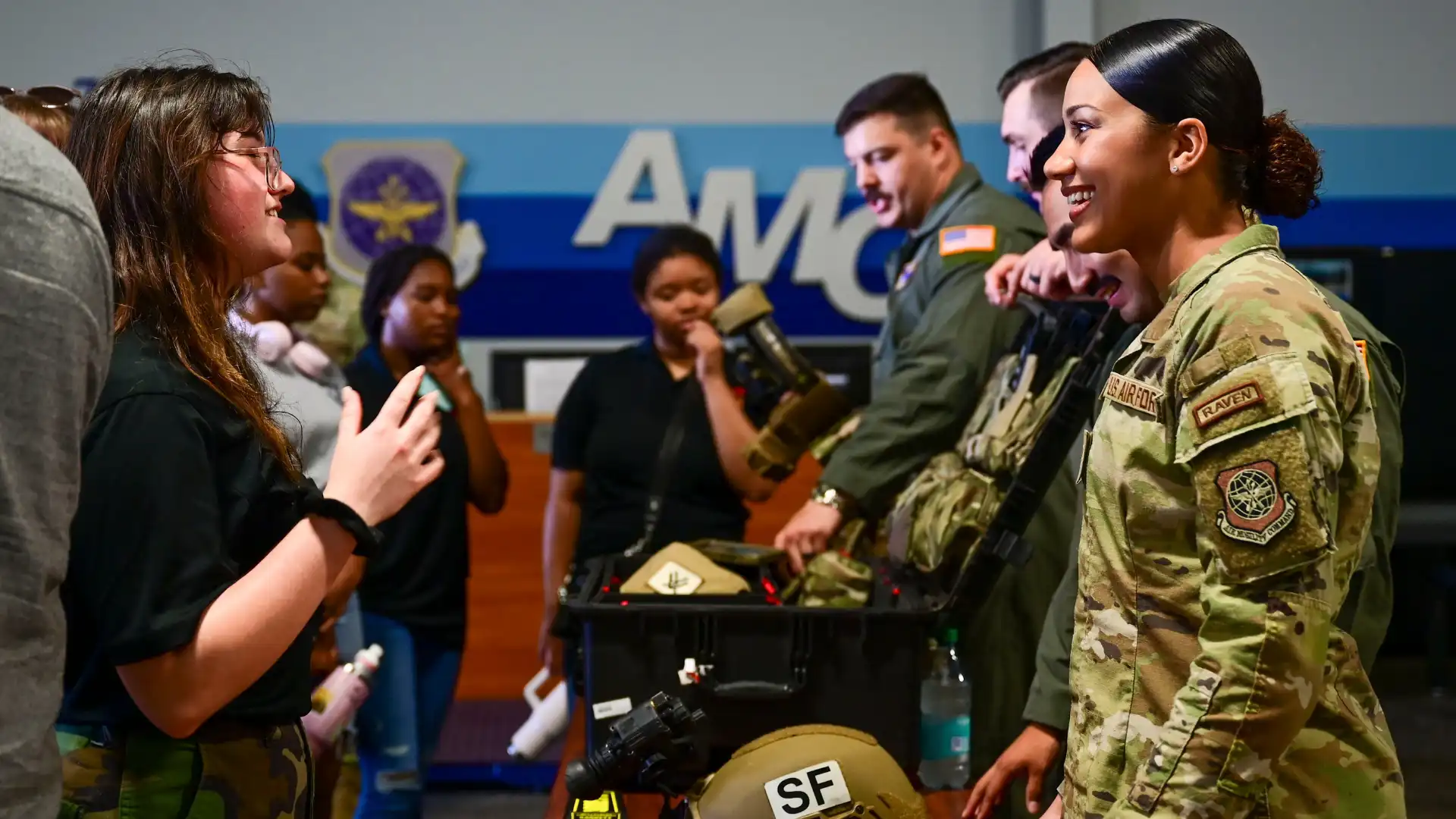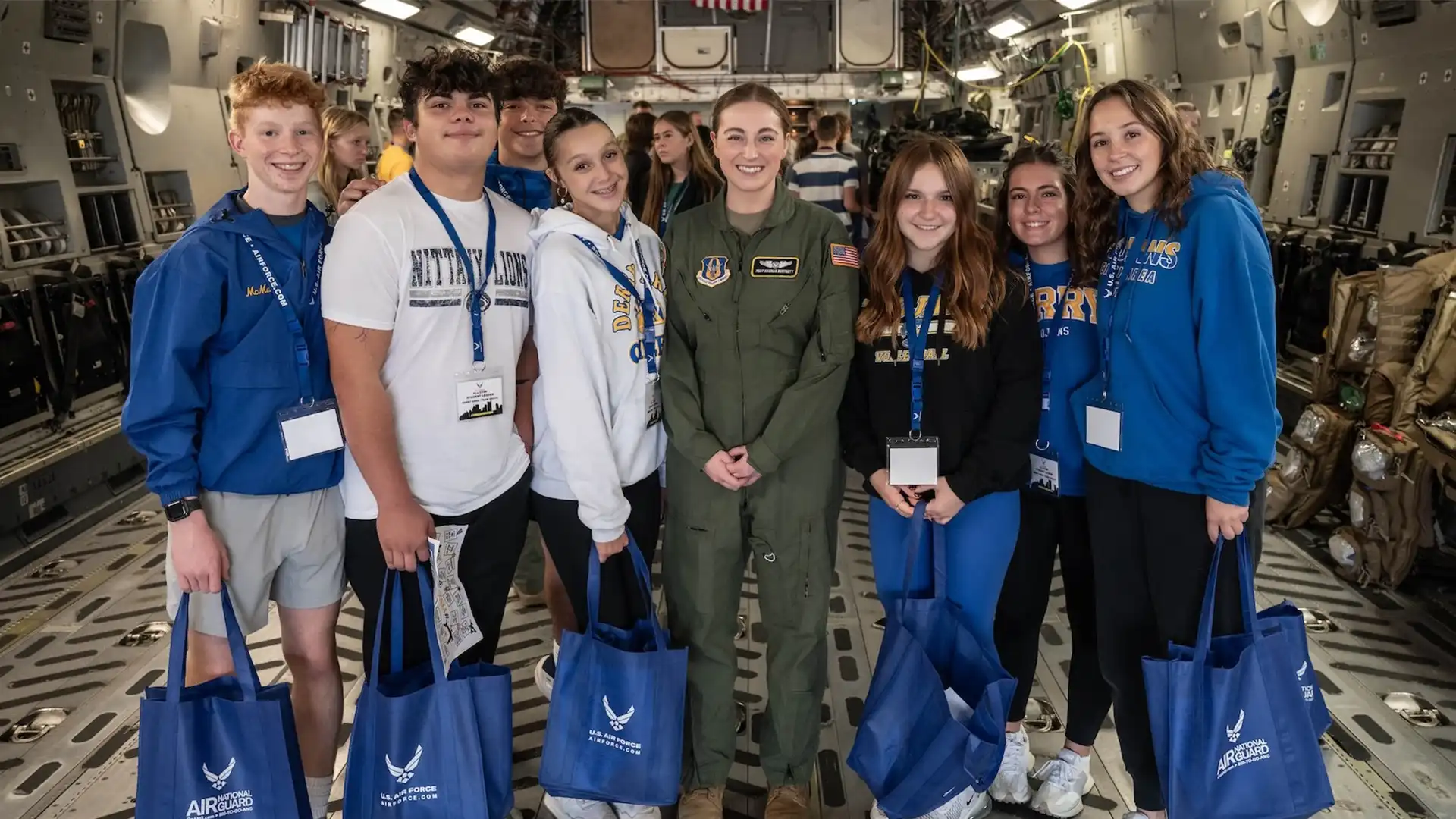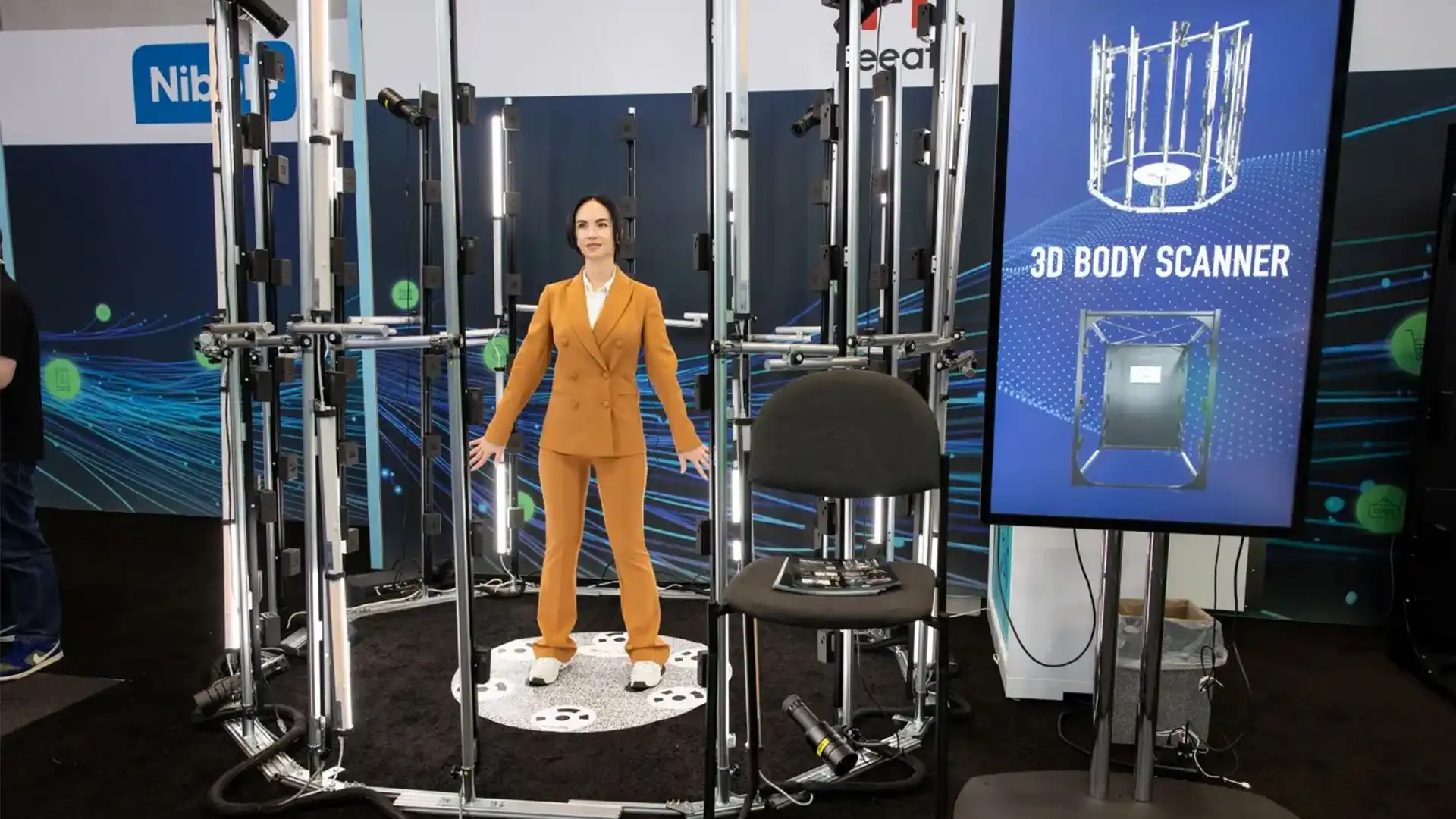"Whatever you do, do it well. Do it so well that when people see you do it, they will want to come back and see you do it again, and they will want to bring others and show them how well you do what you do.”
-Walt Disney

This summer, DECA's executive officer team got a chance to peek behind the curtain (and underground) to see what makes Walt Disney World truly magical. Officers took part in training sessions through the Disney College Program, exploring leadership and culture through the Disney lens.
A company’s organizational culture, or corporate culture, is the set of values, traditions and customs that influence employees’ motivation and behaviors. Disney’s corporate culture ensures that employees reflect ideals that align with target customers’ preferences and expectations in the mass media, parks and resorts, and entertainment industries.
There’s a lot that goes into creating a positive workplace culture that inspires employees to provide incredible customer service. But there has to be an essential foundation on which all service decisions can be developed—a common purpose.
Disney’s key to creating magical Guest interactions stems from the cast members’ understanding of the company’s common purpose, which they describe this way—
"We create happiness by providing the best in entertainment for people of all ages everywhere.”

THE PEOPLE BEHIND THE DISNEY MAGIC
CAST MEMBERS
Every individual who works at a Disney park is known as a cast member. This includes everyone from the costumed character performers to the ride operators to the people working in retail. The park also reflects a show business-like environment by requiring cast members to stay "in character" while in the presence of Guests.
When the Magic Kingdom opened in 1971, approximately 5,500 cast members worked at Walt Disney World Resort. Today, the resort is the largest single-site employer in the United States, employing more than 74,000 cast members in over 3,000 different job classifications.
IMAGINEERS
Imagineers are the ones behind all of the Disney parks and experiences. The title combines the terms “imagination” and “engineering”. Imagineers can take on a wide variety of roles, from research and development to scientists to rock work designers who are actually carving rocks.
PROTECTING THE MAGIC
To keep the less-than-magical parts of the job unseen, there are designated “backstage” areas of all Disney parks. If a cast member is anywhere they could be seen by a Guest, they are “onstage”. While onstage, though, everything they do is contributing to the larger “show” that is a magical Disney experience for their Guests. They must learn certain lingo based on where they are working, whether that’s in Fantasyland in Magic Kingdom or the Disneyland Hotel. Each place has a specific vocabulary as well as a certain feel that cast members try to create for the Guests. For example, at a French restaurant in Epcot, the cast member would likely say something like “Bonjour,” whereas a cast member would say “Attention, Space Rangers!” on Buzz Lightyear’s Space Ranger Spin.
At Magic Kingdom, there is an underground tunnel system that allows cast members to get around the park unseen. The utilidor system allows Disney employees to perform park support operations, such as trash removal, and for costumed characters to quickly reach their destinations on the surface out of the sight of Guests to avoid ruining the illusion that is being created. For example, a Frontierland cast member can’t be seen walking through Tomorrowland. If you spotted a gingham and denim-clad cast member while waiting for Space Mountain, it would remove the magic of the immersive experience that Disney World provides. The underground corridors are set up to allow cast members to quickly get where they need to go in the park, with well-marked doors and color-coded walls to ensure they know exactly where they are before stepping “onstage”. Along with the tunnels, cast members have access to underground cafeterias, dressing rooms and even a salon called Kingdom Kutters.
Working onstage or backstage, cast members are curious, enthusiastic, dynamic and driven by a real love of the resort and the Disney universe. Disney World is one of the few companies where every individual shares an exceptional common goal: to make dreams come true for Guests of all ages!

DISNEY TRAINING TAKEAWAYS FOR YOUR CHAPTER
CAST MEMBERS LEARN THE ORGANIZATION’S HISTORY.
How many people can truly say they know a great deal about their employer’s history? More Disney cast members than other employees can most likely say this. Every Disney cast member is required to take a class called Traditions, that much like it sounds, teaches the traditions of the company. In addition to the founding of the company, and Walt Disney’s early life that inspired so much of the parks we see today, the class focuses on the top-notch Guest service that has been present since day one, and how this service can continue to be shown to Guests with each new set of cast members.
Much like Disney, DECA has a rich history full of inspiring stories and passionate people. When starting your year, from leadership retreats to new member meetings, find ways to invest your chapter in the history of the organization. This will help build a stronger connection between each individual and the organization as a whole.
CAST MEMBERS ARE 100% FOCUSED ON THE GUESTS.
There are a number of rules that Disney cast members must follow in order to keep their jobs. Though the rules may seem strict, they are most definitely beneficial in training cast members and creating the best possible Guest experience. One of the strictest rules pertains to cell phone usage. Cast members could be terminated for even one instance of using their cell phone while onstage, even if it is just one text or a quick check on their Instagram post. This rule exists for the same reason as every other one – cast members don’t do anything unless it is somehow serving their Guests.
If you are a leader in your chapter or association, follow Disney’s lead by creating rules for yourself or your team that hold you accountable for putting your members first.
CAST MEMBERS STICK TO THE LINGO.
Disney uses a number of words and phrases that are different from how other companies would communicate. There are certain phrases that only cast members know, to describe things that do not concern Guests. There are also phrases that Guests are aware of, such as “Guest” instead of “customer,” and “onstage,” instead of “on the clock.” By referring to customers as Guests, it is clear that Disney cast members are taught to truly appreciate everyone in the parks as Guests, and not as simple customers in a transaction. “Onstage,” reinforces the importance of the show for cast members, as it makes it evident that something special is being “performed” in a sense to all of their Guests.
DECA members are just that – they are members of one of the greatest organizations in the world (not that we’re biased at all). This term may seem simple, but it sets each of your members apart from every other student and it is a title they earned when they first made the decision to join DECA. Using common language can help build community within your chapter.
CAST MEMBERS CONTINUE TO LEARN AND GROW IN THEIR ROLES.
Disney University is a training facility where Disney cast members take classes related to their specific roles and work locations. Rather than completing computer or video training, cast members sit in actual classes and are able to take away a lot of valuable information from each session.
When you are planning events or meetings, think about what members are taking away and how you can use that time the most purposefully for them. Consider creating differentiated workshops or meetings at times for members competing in certain events, members interested in leadership roles or first-time competitors.
CAST MEMBERS HAVE A COMMON SET OF PRIORITIES.
The Four Keys– safety, courtesy, show and efficiency, are at the heart of everything Disney cast members do. The keys work together, and the parks would not function properly without all four. This simple training model makes it easy for cast members to evaluate what they should do in difficult situations, and it helps provide the best Guest service possible as they are all used together.
Think about creating team norms or chapter values that are simple enough to reference while embodying everything you hope to see from your chapter.
CAST MEMBERS FOCUS ON THE FUN.
Many Disney roles have a focus on the fun cast members can have with their Guests. During training, many cast members will learn about pin trading and be given a pin lanyard so that they can trade with Guests during their shifts. Another example of this is with merchandise cast members, who “merchantain,” (entertain Guests with merchandise.) Disney is different from other companies, in that cast members are trained to have fun with their Guests, rather than treat each sale or conversation like an ordinary job or transaction.
Your chapter might be focusing on recruiting more members this year. When interacting with potential new members, be authentic and have fun with them. You are much more likely to “sell” the organization and your chapter if you show them how much you enjoy DECA, rather than trying to inform them.















